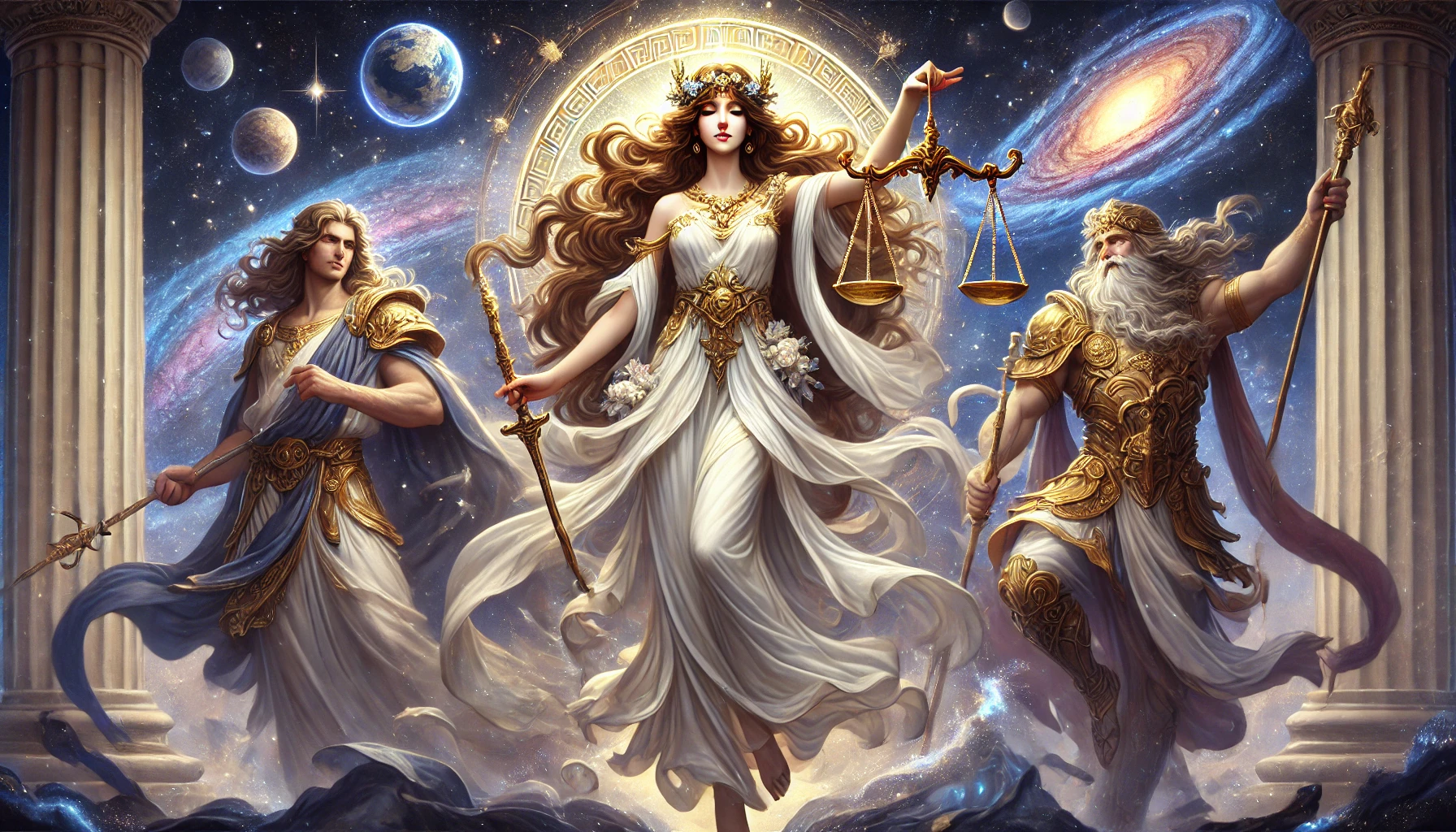1. Overview
The Old Gods represent a pivotal tier in the pantheon of Staterum, serving as central figures in the spiritual and cultural life of its inhabitants. These deities embody core aspects of existence, governing the very nature of mortals. They are not only integral to the religious practices across various cultures but also influence the social, ethical, and political landscapes of Staterum.

2. *Deities
3. Perspectives
The Church of Statera The Church of Statera venerates The Old Gods as the most significant and powerful deities in the cosmos, with Statera herself positioned at the pinnacle of this divine hierarchy. According to the Church, Statera is the creator of the universe, and all things—material and immaterial—can ultimately be traced back to her.
Statera, the goddess of balance, is worshiped as the originator of all existence. Her followers believe that she meticulously crafted the universe with an intrinsic balance that permeates every aspect of life. Her Children, Eris, the god of law, and Dorna, the god of chaos, represent the essential duality of existence. The Church teaches that a balance between Eris’s order and Dorna’s disruption is necessary for a fulfilling and morally upright life.
In stark contrast to the positive reverence for most of the Old Gods, Eolas is viewed by the Church as a cautionary figure. Once a revered goddess of knowledge, Eolas is believed to have misused her wisdom, leading directly to the creation of the Vices—embodiments of human excess and moral failings. The Church teaches that her fall from grace exemplifies how knowledge without wisdom and ethical restraint can lead to corruption and evil.
The Ascended Church Within the theological framework of the Ascended Church, Statera remains the pinnacle of divinity, the supreme deity whose balance and creation are the bedrock of the universe. However, the focus of The Ascended Church is less on Statera herself and more on the role of the human-derived gods who embody humanity’s potential and achievements.
The Ascended Church holds a critical view of the other Old Gods, particularly Eris, Dorna, and Eolas. They believe that Eris and Dorna, representing law and chaos respectively, have abandoned humanity to retreat into their own realms, focusing on their cosmic duties over the welfare of the mortal races. Eolas, once a beacon of wisdom and knowledge, is seen as having failed humanity by succumbing to her own pride and curiosity, which led to her downfall and becoming a pawn of the vices.
Rather than the Old Gods, the Ascended Church venerates the Ascended Gods—Vilcren, Ratura, and Mercio—as the true embodiments of human potential and divine guidance. These Ascended Gods have filled the role of the Old Gods, whom all but Statera have failed humanity.
The Dahri Empire In the Dahri Empire, the concept of divine beings or Old Gods is approached with considerable skepticism. While the historical impact and the stories of the Old Gods are acknowledged as significant, the Dahri interpret these entities through a lens of critical rationalism.
Dahri scholars theorize that the beings referred to as “gods” by other cultures were not divine in nature but rather a precursor race possessing advanced technology or magical capabilities. This precursor race, having arrived at a time when human societies were still nascent, used their superior knowledge and powers to awe and manipulate early humans. According to this view, the feats attributed to these gods were not miracles but the applications of advanced science and magic, which appeared miraculous to less advanced societies.
Modern Dahri, educated under the Empire’s philosophy of skepticism towards the supernatural, regard the tales of the Old Gods as examples of historical manipulation. They believe that the gods’ “divine” interventions and teachings were tactics used to exploit human awe and dependency. Politically and culturally, the Dahri Empire has distanced itself from the worship and reverence of these Old Gods. This distancing is seen not only as a rejection of false divinity but also as a statement of human independence and intellectual maturity. The Dahri pride themselves on having recognized the true nature of these precursor beings and having made the conscious decision to reject their influence.